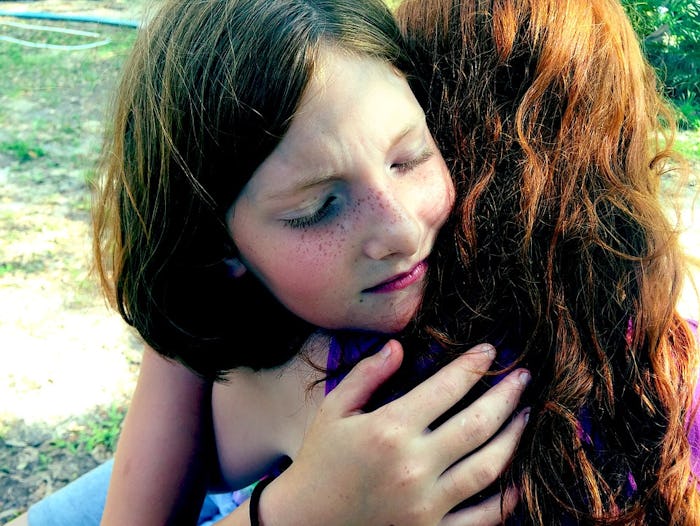Just one scroll through a daily newsfeed can make me feel like the world is drowning in negativity, hurt, and sadness. Which makes me think about my kids; the ways in which these events will affect them and what I can teach them about seeking solutions and be a problem solver. At the root of positive change is compassion, a trait I believe most parents would like to instill in their children. It's easy to miss the clues you're raising a compassionate child if you don't take the time to slow down and really observe your child's behaviors and interactions with others.
Nothing makes me feel more actualized as a parent than to know my kids were listening when I passed on some quality life information. Sure, they're quick to point out when I loose my temper or let a swear word slip. But it's those rare times when I notice that I really did get through to them on an important topic that makes me feel as if all the hard days are worth it. Fostering compassion in children will set them up to be the leaders and change makers of their generation, and make the world a kinder place.
If you've ever wondered if your kids are putting compassion into action, look for these 11 clues that confirm you're child has a heart of gold.
1They Show Empathy
It's impossible to read any research about compassion without coming across the role of empathy. This is commonly referred to as putting yourself in someone else's shoes. As Parenting magazine pointed out, mastering the ability to read other's emotions, which is a key component of empathy, is possible for kids as young as 18 months old.
2They're Inclusive
If you're child makes an effort to ensure no one is left out, they are acting with compassion. According to the website for Scholastic, children can understand that being excluded or called mean names is just as hurtful as being kicked or hit. So when they make an effort to be inclusive, they are being mindful of how others feel.
3They Give Easily
Giving isn't something that comes naturally to everyone, so when your child exhibits generosity, it's a sign they have a compassionate heart. When teaching kids to be compassionate, Parents magazine recommended encouraging children to give to charity so they can see how their efforts help others.
4They Are Sweet To Animals
Being kind to humans is always something parents like to see their children do, but extending thoughtfulness to animals is another ways kids show they understand compassion. Kids know pets need love and caring for, according to What To Expect's website, and grasping this concept helps build their compassion.
5They Stand Up To Bullies
Even if it's not your child who is being bullied, taking a stance against that type of behavior is important. According to the website Everyday Parent, brainstorming ideas with kids about why a bully acts they way they do can help your child build compassion rather than just thinking the bully is one of the "bad kids." This way, kids can extend compassion to the "bully," and try to build them up while still telling them that their behaviors are hurtful to others.
6They Team Build
Having a competitive edge may be seen as an advantage in some arenas, but when it comes to showing compassion, it's best for kids to team build. As Psychology Today pointed out, kids who are taught to team build instead of compete are more likely to extend compassion to their peers.
7Their Friendship Is Sought By Others
When someone is a good friend, others notice — and there is no difference when it comes to little ones. As the Washington Post pointed out, balancing personal needs with the needs of others fosters compassion in kids. So if other children are seeking out your child as a friend, that means they recognize their compassionate spirit.
8They Use Feeling Words
Being able to express how you feel can help you relate to the way others feel. Once kids have a good feelings vocabulary, they can pick up on they way people around them feel, according to Parents. This will tip them off on when to show compassion when others are sad or lonely.
9They Praises Others
Recognizing the things people do for you boosts bonding, according to Parenting. Taking the time to compliment and thank those who do even the simplest task for them, helps kids connect with the action as well as the person who did it.
10They Respond Appropriately To Emotions
Being able to recognize how someone else feels with cues such as facial expressions is a step in compassion for kids, according to Scholastic. Once kids can associate a facial expression with a feeling, they can respond with an appropriate action, such as trying to cheer up someone who looks sad.
11They Show Gratitude
According to the website for the Association for Psychological Science, a compassionate lifestyle and gratitude go hand in hand. So if your little one is thankful for the things they have and get to do, you can feel pretty good that their compassion quotient is high.
